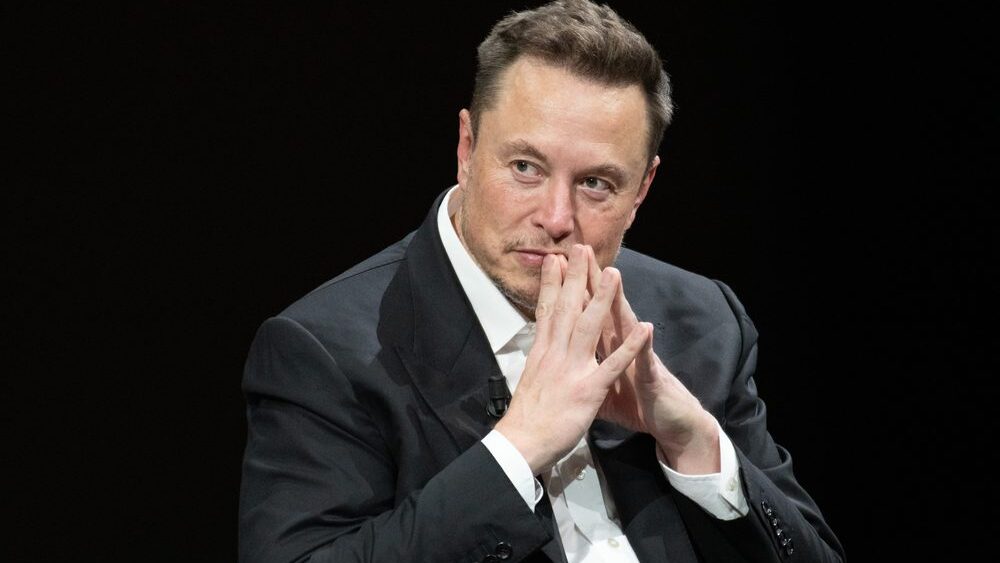The European Union launched an investigation into Elon Musk’s social media platform X on Monday, December 18th, under a law designed to “prevent illegal and harmful activities online and the spread of disinformation.” The action against the company is the first against a major online platform since Brussels implemented the Digital Services Act (DSA).
The DSA came into force last year and requires very large online platforms and search engines to do more to tackle illegal content and risks to public security. It affects the practices of companies such as Google, Facebook, and X.
As Mick Hume previously wrote in his Democracy Watch column, the DSA
is really an attack on the most ‘fundamental right’ of all—freedom of speech. … The DSA empowers the Commission to police and suppress the views of populist and right-wing parties that don’t conform with Brussels’ worldview, under the pretext of combating ‘hate speech’ and ‘disinformation.’
The European Commission said a preliminary information-gathering investigation it launched against X in October, which included looking at “the dissemination of illegal content in the context of Hamas’ terrorist attacks against Israel,” led to Monday’s probe. The Commission also launched preliminary investigations along the same lines against TikTok, YouTube, and Facebook owner Meta.
Following Palestinian terrorist group Hamas’ attacks on Israel on October 7th, X and other social media companies were flooded with fake images and misleading information. European Commissioner for Internal Market Thierry Breton sent letters to X, Meta, TikTok, and Alphabet—the parent company of Google—reminding them of their obligations under the DSA to tackle harmful and illegal content.
The formal probe against X will, among other things, examine whether the platform disseminated ‘illegal content’ and the effectiveness of X’s efforts to combat disinformation. In the event of proven infringements, penalties can include fines of up to six percent of the company’s global revenues. For serious and repeated violations, the EU can ban a platform operating in the 27-nation bloc, AFP reports.
While X stated it remains committed to complying with the DSA, Elon Musk, reacting to the Commission’s announcement on the investigation, tweeted:
Are you taking action against other social media? Because if you have those issues with this platform, and none are perfect, the others are much worse.
Are you taking action against other social media?
— Elon Musk (@elonmusk) December 18, 2023
Because if you have those issues with this platform, and none are perfect, the others are much worse.
Since acquiring one of the biggest social media platforms in the world, X—then known as Twitter—last year, American-South African entrepreneur Musk has aimed to make Twitter a platform for free speech, restoring the banned accounts of public personalities, such as former U.S. President Donald Trump. X now lets users fact-check false or misleading content, rather than a dedicated team of fact-checkers. The EU has complained that X does not have enough content moderators to ensure users comply with EU online content rules. Musk also pulled the platform out of a voluntary EU pact against disinformation, a set of voluntary commitments to cooperate with Brussels in its effort to tackle harmful and intentionally misleading content on social media. European Commission Vice President Vera Jourová said X is the biggest source of fake news.
Elon Musk has been criticised by leftist and liberal commentators and decision-makers for his libertarian-conservative views, such as his rejection of illegal migration and the transgender ideology. His company also recently announced it would sue partners of George Soros’s Open Society Foundations in a free speech row.
With regard to the European Commission’s investigation, X stated “it is important that this process remains free of political influence and follows the law.”
Some Italian politicians defended Musk and criticised the EU Commission, Reuters reports. Musk spent the weekend in Rome, speaking at a conservative political gathering organised by Italian Prime Minister Giorgia Meloni’s party. Deputy Prime Minister Matteo Salvini tweeted:
Elon Musk is right: freedom of speech only makes sense if it allows people you don’t like to say the things you don’t like. Long live freedom of thought, anytime, anywhere.
La Commissione Europea apre una procedura di infrazione contro X per “sospetta violazione del cosiddetto Digital Service Act” che la Lega (unico partito italiano) aveva bocciato ritenendolo un bavaglio.
— Matteo Salvini (@matteosalvinimi) December 18, 2023
Nel 2024 ci sarà l’occasione per cambiare l’Europa, contro ogni censura e… pic.twitter.com/9C9syWp9qV






